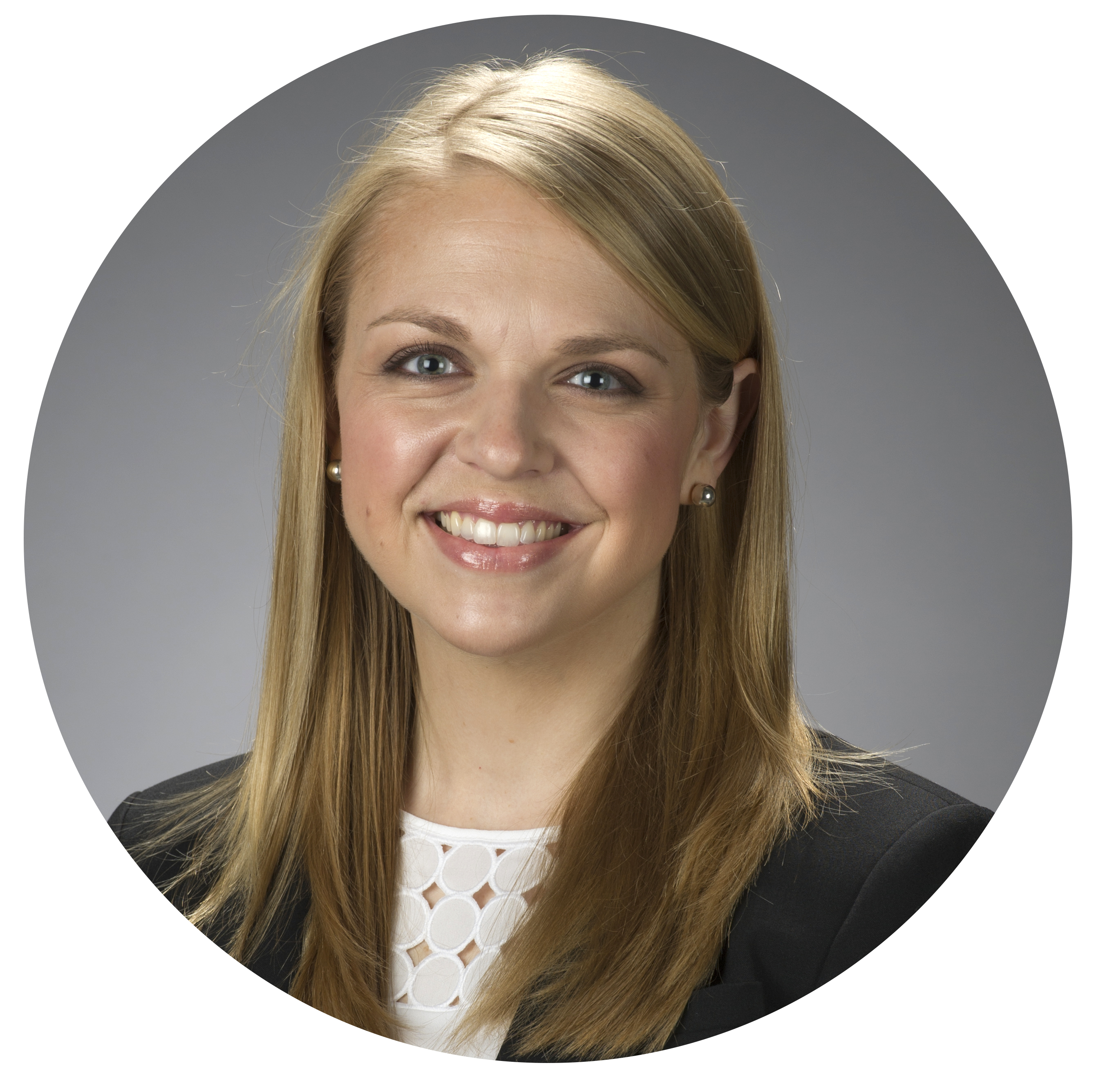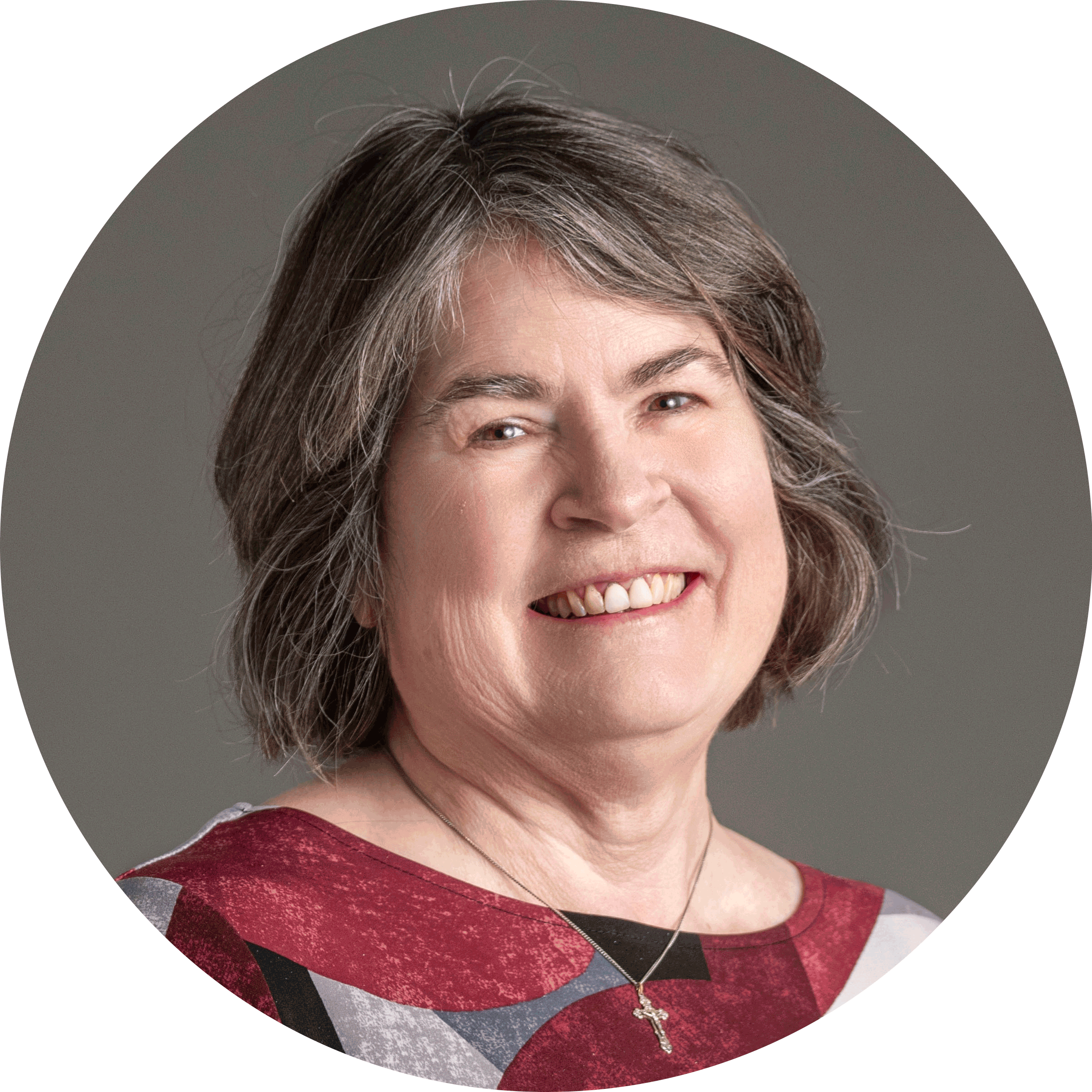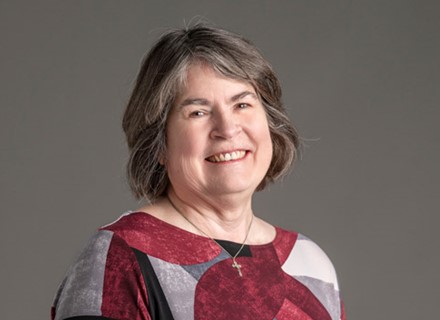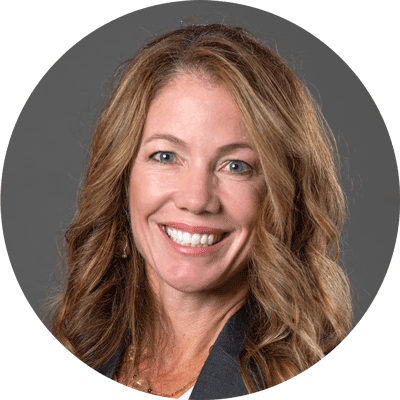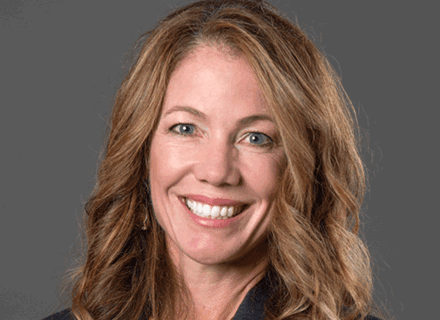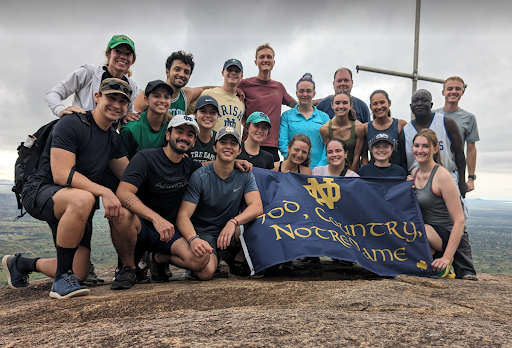DEI Case Competition 2024
On April 12, the College hosted the third annual Diversity, Equity and Inclusion Grow the Good in Business™ Case Competition. Building on the success of the competition in 2022 and 2023, we opened this formative DE&I experience to all undergraduate and graduate students across the University of Notre Dame this year, requiring one student per team to be affiliated with Mendoza. The case focused on the rise of private equity in health care and its role in addressing health equity.
Health equity not only aligns with principles of justice, fairness and human rights, but healthier populations are also more productive, leading to economic benefits for society and increased social and economic mobility. Over the past two decades, private equity firms have become interested in the health-care sector. While this interest has generated scrutiny regarding quality of care and increased spending, some experts are optimistic that the private equity industry could provide health-care organizations with the capital they need to improve patient care, expand access and drive innovation.
Students in the 2024 case competition were challenged with devising a for-profit investment that brings better balance to our health-care system. Their tremendous and bold ideas ranged from telehealth platforms and community gardens to meal kits for SNAP users. The proposed solutions served populations such as expectant mothers and rural communities, and involved for-profit and nonprofit organizations, social impact investors and a wide range of community partners.
Congratulations to finance major Ellen Lundblad (BBA ’24) and physics in medicine major Renee Maslak (ND ’24) for winning first place on the undergraduate track of the competition, and Hannah Darr (MNA ’24), Caitlin Cruickshank (MNA ’24) and Katie Bardine (MNA ’24) for their first place finish on the graduate track.
The competition was a great success again this year, measured by the participation of students, faculty and staff, representation across Mendoza programs and majors, and support from the companies providing various forms of sponsorship. Seventy-nine students entered from nine graduate programs and 20 undergraduate majors. The competition engaged 23 first round and 11 final round judges from different stakeholder groups and was supported by 13 sponsoring organizations.
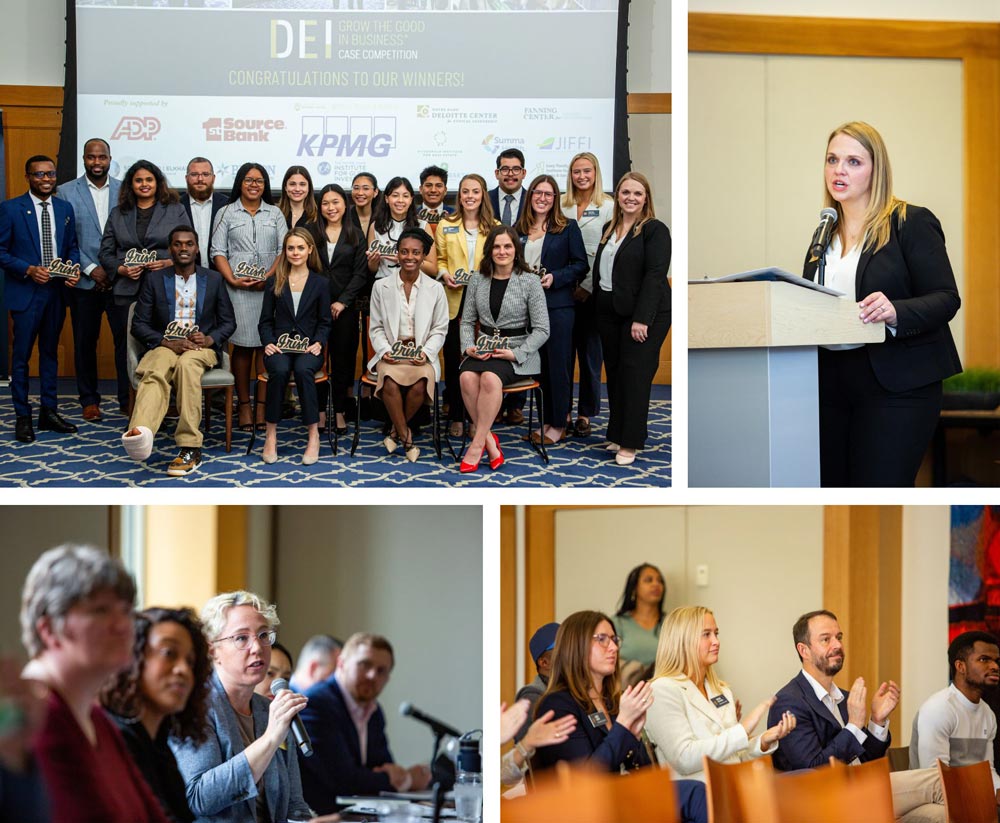
Financial sponsors returning from previous years included KPMG, ADP, South Bend-Elkhart Regional Partnership, 1st Source Bank, Notre Dame Deloitte Center for Ethical Leadership and Fanning Center for Business Communication. We also welcomed new sponsorship from Beacon Health Foundation, Notre Dame Institute for Global Investing, Fitzgerald Institute for Real Estate, Impact Assets and Lucy Family Institute for Data and Society. The exceptional financial sponsorship from these organizations allowed the College to award $35,000 in prizes to the top six teams in the competition, with the two winning teams – one undergraduate and one graduate – receiving $20,000 overall.
A major accomplishment of this year’s competition was the extent to which the College involved multiple stakeholders, including faculty and staff from both within and outside of Mendoza, as well as alumni. Participation by these groups ranged from serving as faculty coaches for teams and holding pitch practices and office hours, to serving as first and second round judges.
A special thanks to the following members of our own Mendoza community for providing this support: Randy Harrison, John Michel, Pat Gibbons, Jim O’Rourke, Carolyn Langley, Jeff Bernel, Sophie Shive, Jessica McManus Warnell, Brett Beasley, Mindy Evans, Andy Wendelborn, Jessica Stookey, Joe Sweeney, Tahra Taylor, Joe Holt, Lindsey McIntyre, Sherry Nadai, Natalie Sargent, Jennifer Wade and Kelly Rubey. I am also grateful to Stephanie Drudge, Lara Brian, Minhee Myung, Hether Graham and Zara Osterman for their significant leadership in elevating the case competition experience for our students this year.
The Diversity, Equity and Inclusion Grow the Good in Business™ Case Competition is one of the College’s many endeavors which reinforces that the pursuit of equity is essential to good business and to our charge at Mendoza. On April 12, the stellar work of our students in incorporating DEI ideals into real-world business plans confirmed what most of us already know, which is that our students are leaving Notre Dame with the important and essential capacity to be ethical business leaders. Our futures are certainly in good hands.
In Notre Dame,
Kristen
Kristen Collett-Schmitt
Associate Dean for Innovation and Inclusion
Teaching Professor, Finance


